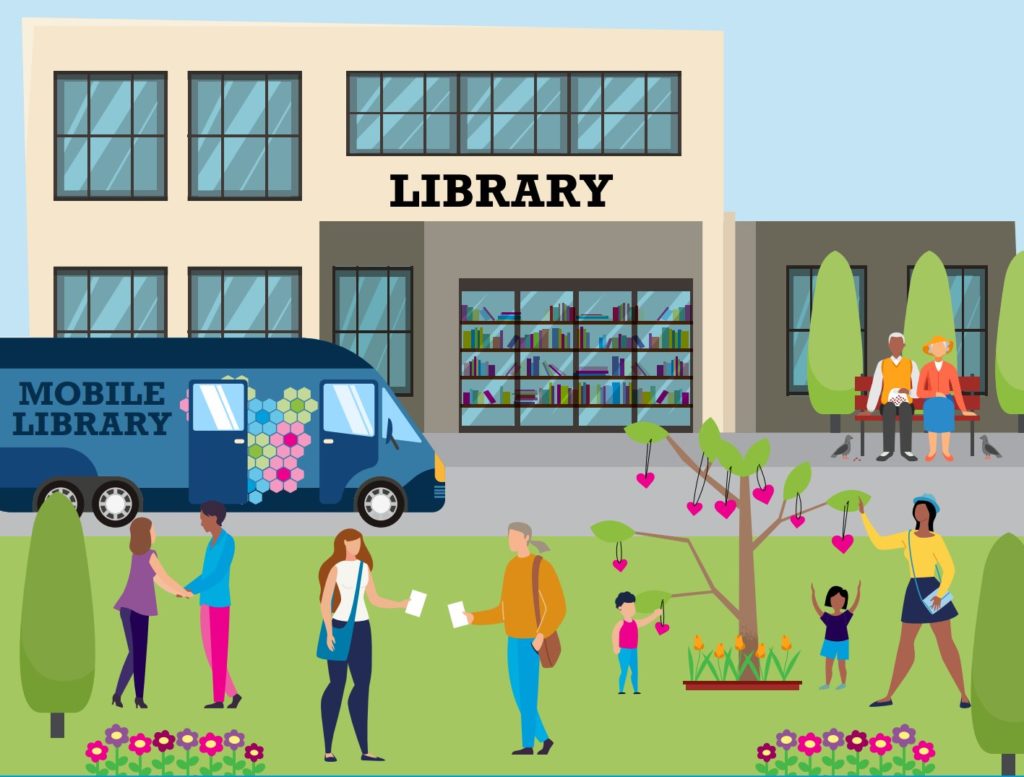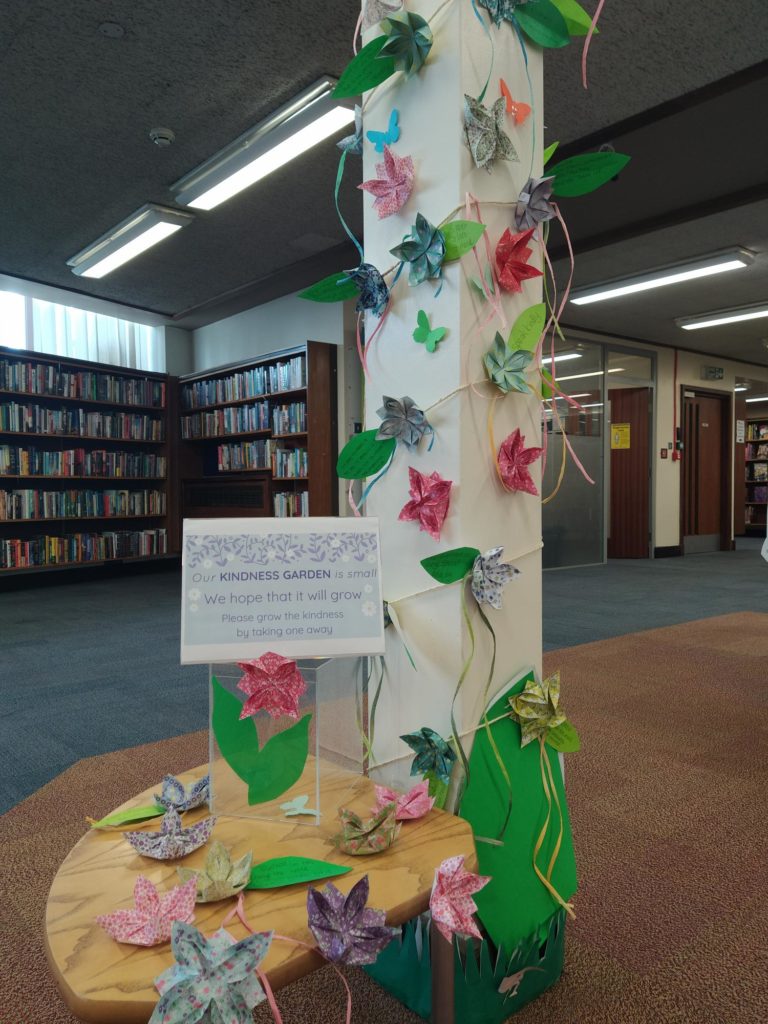Public libraries can encourage kindness
by Jenny Peachey and Ben Thurman
Kindness is at the heart of our wellbeing. We know that the relationships we have and the connections we make with those around us are fundamental to improving outcomes for people and communities, and this has only become more evident over the last 18 months. We also know that libraries, positioned at the heart of their communities, are well placed to actively encourage and facilitate opportunities for kindness – indeed, most already do so without even realising it.
Over the last year, the Carnegie UK Trust has been exploring what can be done to enhance the role that libraries play in creating the conditions for kindness. We worked with 10 public libraries in Scotland, providing support and a small amount of funding to develop and deliver practical initiatives that encouraged people to think about kindness and to build better relationships with those around them. Despite being conducted during the COVID-19 pandemic that brought restrictions on the use of library buildings, we found that libraries were able to adapt and innovate, creating opportunities for people to connect in different spaces and through different mediums.
Examples of initiatives from participating libraries included postcard and letter exchanges between schoolchildren and older members of the community; interactive ‘kindness trees’ where library users could share memories and messages; and virtual story and craft cafés that created space for community conversations about kindness whilst people made things from pre-delivered kindness craft bundles.

A kindness bundle of library letters from Culture Perth and Kinross, who paired Books on Wheels library customers with staff volunteers in a pen-pal partnership
The learning from these varied initiatives stems both from the experience library staff had of delivering small kindness initiatives; and their experience of being part of a small cohort of library practitioners undertaking this work, on a shared journey during COVID-19.
- Simple is effective: Simple acts of sharing experiences of kindness on a pillar or ‘kindness tree’ engaged people and facilitated a sense of connection in the community as people responded to messages others had written. The sharing of stories also provoked conversations between members of the public and staff about kindness.
- Connection can transcend the physical: Despite the impacts of restrictions on library buildings, participants were able to engage people in online environments in a way that enabled quality reflection and conversation about kindness. After participating online in story cafés or in the act of crafting together, participants reported a sense of community connection and appreciation for the chance to put a spotlight on the quality of kindness.
- Creating time to think about kindness is in itself powerful: One service reported how their initiative had enabled staff to reflect on the relationship between kindness and belonging, the importance of kindness in a healthy library service, building and forging relationships with individuals and communities and the role of staff in creating kind services. Time and space to consider kindness has provoked participants to reflect on where else they can promote and incorporate kindness beyond the scope of this work.
- It doesn’t take a lot to do something impactful: The initiatives were low cost. The majority of participants applied for no more than £250, with one participant not asking for any funding at all, just the opportunity to connect with others interested in the kindness agenda.
Our hope is that, by sharing these examples, the report will inspire others to think about the role of kindness where they are, and to consider what small changes they could make to create space for kindness in their library services and the wider community. Over the past 18 months, as our relationships and wellbeing have been impacted by the COVID-19 crisis, this has never felt more important. And so we are grateful to all the libraries who reaffirmed their involvement in the project when it might have felt easier to push such conversations to one side. Because it is when creating space for kindness feels most difficult, that it is of the greatest importance.
To read the full report from Carnegie UK Trust, please click here: Creating Space for Kindness – an experiment with public libraries in Scotland.

